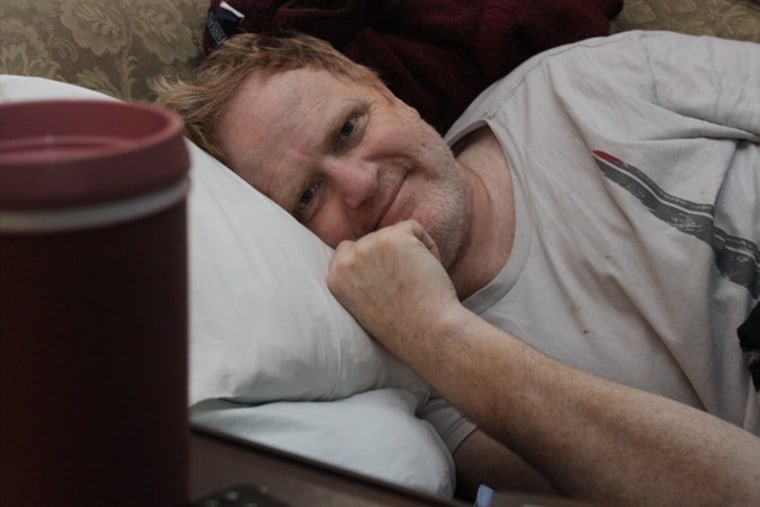Cancer drugs cost way too much and it’s time to take steps to bring the price down, 118 of the country’s top cancer experts said Thursday.
They think patients should start calling loud and clear for reforms, and say government programs such as Medicare should have the power to negotiate lower drug prices, as national insurance plans in other countries do.
Their plan, published in the Mayo Clinic Proceedings, escalates the debate over the newest cancer drugs, which can save lives but can cost upwards of $100,000 a year per patient.
“In the United States, the average price of new cancer drugs increased 5- to 10-fold over 15 years, to more than $100,000 per year in 2012,” Dr. Ayalew Tefferi of the Mayo Clinic, Dr. Hagop Kantarjian of the MD Anderson Cancer Center in Houston, Dr. Eric. Winer of the Dana Farber Cancer Institute and other top oncologists wrote.
"In 2014, all new U.S. Food and Drug Administration (FDA) approved cancer drugs were priced above $120,000 per year of use," they noted.
"Patients should voice their concerns and take a page from the history of AIDS advocacy strategies that resulted, within decades of the start of the AIDS epidemic, in the FDA approval of more than 35 AIDS drugs that now prevent most AIDS deaths and allow patients to live normal lives, with affordable AIDS drugs available to all."
“Patients should voice their concerns and take a page from the history of AIDS advocacy strategies."
Patients like Stuart Chapin of Fredericksburg, Virginia are feeling the pinch. Chapin, 55, has had stage four colon cancer since 2009 and can no longer work.
“We've gone past circling the drain to clinging to the wreckage,” Chapin told NBC News.
“We've spent $60,000 over the last eight years in insurance co-pays. We have insurance. But it's still not enough. And as long as he lives, we have to continue paying,” Chapin’s wife Vanessa added.
“When you put it all together, our financial situation is ridiculous. We have many issues going on in addition to chemotherapy. But it's the cost of keeping him alive.”
The oncologists say patients like Chapin need to get angry and loud.
"A cancer patient-based grass-roots movement that advocates against the high price of cancer drugs can accomplish a great deal. One such movement, a petition, is already available and is actively collecting signees.
They point out a website, a Facebook page and a Twitter handle (@StopHighRxCosts) for the campaign.
They also recommend that Congress:
- Create a way for the Food and Drug Administration to propose a fair price for new treatments
- Allow Medicare to negotiate drug prices (it currently is forbidden to do so)
- Allow the Patient Centered Outcomes Research Institute, created as part of the 2010 Affordable Care Act, to include drug prices when assessing which treatments are most useful
- Allow the importation of cancer drugs across borders for personal use
- Pass legislation to prevent drug companies from delaying access to generic drugs
- Reform the patent system so companies cannot prolong product exclusivity to keep prices up
"The average annual household gross income in the United States is about $52,000," the oncologists note.
"For a patient with cancer who needs one cancer drug that costs $120,000 per year, the out-of-pocket expenses could be as high as $25,000 to $30,000 — more than half the average household income and possibly more than the median take-home pay for a year."
The drug industry says it’s more important to make sure health insurance companies pay the full rate for cancer drugs.
“Americans pay through the nose for their medication, almost more than any other country on Earth."
"The article ignores the fact that cancer medicines represent only one-fifth of total spending on cancer treatment," Robert Zirkelbach, spokesman for the drug industry group PhRMA, said in a statement.
"The policy proposals they recommend would, if adopted, send a chilling signal to the marketplace that risk-taking will no longer be rewarded, stopping innovation in its tracks and halting decades of progress in cancer care."
Drugmakers argue that research and development costs them billions, and that more drugs fail than ever make it to market.
Chapin just knows that cancer treatments are less expensive in other countries.
"Americans pay through the nose for their medication, almost more than any other country on Earth," he said.
"I do not look for charity. I do believe in what is fair. But I do not believe that what I am being charged is anywhere close to being fair," he added.
"This could hit anybody at any time. There is no way that you can prepare for this."
NBC's Rich McHugh contributed to this story

